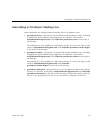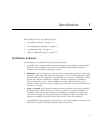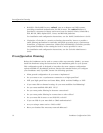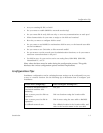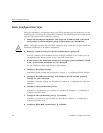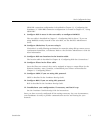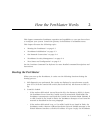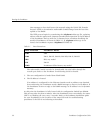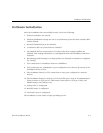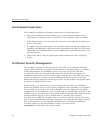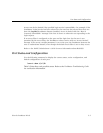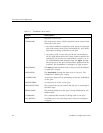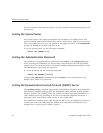
2-1
How the PortMaster Works
2
This chapter summarizes PortMaster operation and capabilities so you can choose how
to configure your system. Consult the glossary for definitions of unfamiliar terms.
This chapter discusses the following topics:
• “Booting the PortMaster” on page 2-1
• “PortMaster Initialization” on page 2-3
• “On-Demand Connections” on page 2-4
• “PortMaster Security Management” on page 2-4
• “Port Status and Configuration” on page 2-5
See the
PortMaster Command Line Reference
for more detailed command descriptions and
instructions.
Booting the PortMaster
When you start up the PortMaster, it carries out the following functions during the
booting process:
1. Self-diagnostics are performed. The results are displayed to asynchronous console
port C0 or S0 if the console DIP switch (first from the left, also known as DIP 1) is
up.
2. ComOS is loaded.
– If the netboot DIP switch (second from the left, also known as DIP 2) is down,
the PortMaster boots from the ComOS stored in nonvolatile Flash RAM. The
PortMaster uncompresses and loads the ComOS into dynamic RAM (DRAM). If
a valid ComOS is not found in Flash, the PortMaster attempts to boot from the
network as described in the next paragraph.
– If the netboot DIP switch is up, or if a valid ComOS is not found in Flash, the
PortMaster sends a Reserve Address Resolution Protocol (RARP) message to the
Ether0 Ethernet interface to find its IP address. If it gets a reply, the PortMaster



